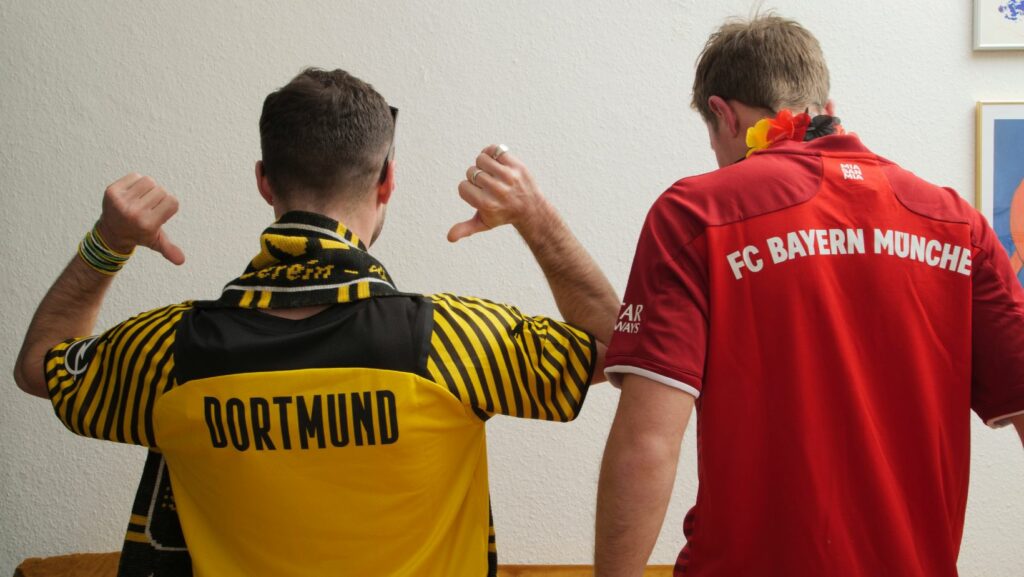Football isn’t just a game; it’s a global phenomenon that unites millions. From the streets of Brazil to the stadiums of Europe, the culture surrounding football shapes identities and communities. Fans celebrate victories and mourn losses, creating a vibrant tapestry of emotions that transcends borders.
Culture of Football
Football serves as a significant cultural phenomenon that transcends borders and unites diverse communities. Fans across the globe share a deep emotional connection to their teams. Celebrated victories lead to communal joy, while devastating losses evoke profound sadness, reinforcing the sport’s impact on individual and collective identities.
Identity and Community
Football shapes personal and group identities through fan culture. Supporters often display allegiance through jerseys, scarves, and chants. Local teams enhance community pride, fostering a sense of belonging among fans.
Social Dynamics & Rivalries
 Football influences social interactions and dynamics. It encourages camaraderie among supporters who gather in stadiums, bars, or homes to watch matches. This communal experience strengthens relationships and builds networks.
Football influences social interactions and dynamics. It encourages camaraderie among supporters who gather in stadiums, bars, or homes to watch matches. This communal experience strengthens relationships and builds networks.
Passionate rivalries characterize football culture, fueling intense emotions and loyalty. Derbies, such as the El Clásico in Spain or the Manchester Derby in England, create unique atmospheres where teams and fans prioritize their identities over others.
Tradition and Values
Football reflects local traditions and universal values of sportsmanship. Countries infuse their cultural heritage into their football practices, from distinct playing styles to unique celebrations. The sport promotes teamwork, discipline, and perseverance.
Economic Impact & Global Reach
 Football generates significant economic activity. Clubs provide employment, promote local businesses, and attract tourism. Major tournaments like the FIFA World Cup stimulate economies, showcasing the sport’s broader cultural and financial influence.
Football generates significant economic activity. Clubs provide employment, promote local businesses, and attract tourism. Major tournaments like the FIFA World Cup stimulate economies, showcasing the sport’s broader cultural and financial influence.
Football’s global reach represents a unique blend of cultures. International competitions, such as the UEFA Champions League, unite teams and fans worldwide, promoting cultural exchange and mutual respect. The globalization of the sport fosters understanding and connectedness among diverse populations.
The Impact of Football on Society
Football significantly affects society by shaping community dynamics and influencing economic growth. The sport connects people, engendering strong social bonds and shared values.
Community and Identity
 Football fosters a sense of belonging among fans, creating unique community identities. Local clubs serve as symbols of pride, with supporters rallying behind teams that represent their neighborhoods or regions. For instance, grassroots initiatives in various countries empower youth through football, promoting social integration and cohesion. Fans express their loyalty through rituals such as wearing jerseys and chanting, which reinforce group identity. Events like local derby matches heighten this sense of community, uniting individuals regardless of background or status.
Football fosters a sense of belonging among fans, creating unique community identities. Local clubs serve as symbols of pride, with supporters rallying behind teams that represent their neighborhoods or regions. For instance, grassroots initiatives in various countries empower youth through football, promoting social integration and cohesion. Fans express their loyalty through rituals such as wearing jerseys and chanting, which reinforce group identity. Events like local derby matches heighten this sense of community, uniting individuals regardless of background or status.
Economic Influence
Football significantly contributes to economic development on multiple levels. Clubs generate substantial revenue through ticket sales, merchandise, and broadcasting rights. For example, European leagues collectively generate billions annually, supporting local businesses and creating thousands of jobs. Major tournaments, such as the FIFA World Cup, attract millions of visitors, boosting tourism and hospitality sectors in host countries. Furthermore, investments in football infrastructure, including stadiums and training facilities, foster long-term economic growth. Overall, the economic influence of football extends far beyond the pitch, affecting various aspects of society.
The Role of Media in Shaping Football Culture
 Football’s influence extends beyond the pitch into the realm of media where stories, highlights, and analyses shape public perception. The rise of digital platforms has transformed how fans engage with the sport, creating a global community that thrives on shared experiences. Social media amplifies emotions and rivalries while connecting supporters across continents.
Football’s influence extends beyond the pitch into the realm of media where stories, highlights, and analyses shape public perception. The rise of digital platforms has transformed how fans engage with the sport, creating a global community that thrives on shared experiences. Social media amplifies emotions and rivalries while connecting supporters across continents.
As football evolves, so does its culture, reflecting changes in society and technology. The sport’s ability to adapt ensures it remains relevant and continues to spark passion among fans. Ultimately, football isn’t just a game; it’s a cultural phenomenon that unites people, fosters pride, and drives economic growth. Embracing this culture reveals its profound impact on individuals and communities worldwide.

